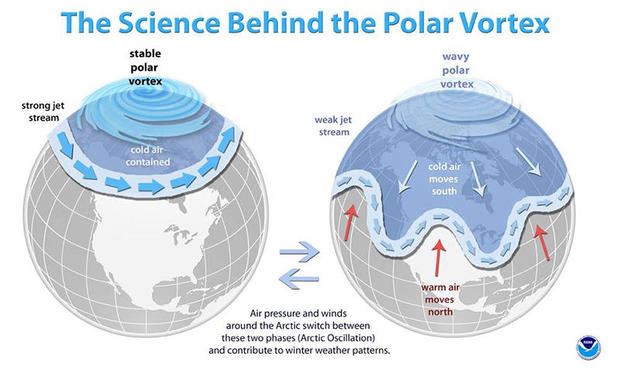Why in news?
A record-breaking cold wave has swept through the US Midwest, with 22 states hitting sub-zero temperatures.
What is the condition at present?
- Among cities, Chicago dropped to a low of -30°C, slightly above the city’s lowest-ever reading of -32°C from 1985.
- Minneapolis recorded -32°C.
- The extreme cold has been caused by a blast of Arctic air, which in turn is a result of what is known as a “polar vortex” event.
What is a polar vortex?
- The polar vortex is a large area of low pressure and cold air surrounding both of the Earth’s poles.
- The system has a whirling mass of cold air circulating in the mid- to upper-levels of the atmosphere, flowing counter-clockwise.
- This flow of air helps in containing the colder air within the poles.
What is a "polar vortex" event?
- Normally, when the vortex is strong and healthy, it helps keep a current of air (the jet stream) travelling around the globe in almost a circular path.
- This current contains the cold air north of it and the warm air south of it.
- But in winter, in the northern hemisphere, the polar vortex sometimes becomes less stable and expands.
- This occurs when there is a lack of a strong low-pressure system, resulting in jet stream losing the hold to keep it in line, and becoming wavy.
- So a wave of cold air will be pushed down south.
- This is called a polar vortex event, defining the “breaking off” of a part of the vortex.

Where does it happen?
- A polar vortex event is not confined to the US.
- Portions of Europe and Asia also experience cold surges connected to the polar vortex.
- The risk lies in the magnitude of how cold temperatures will get when the polar vortex expands, sending Arctic air southward into areas that are not usually that cold.
Source: The Indian Express
